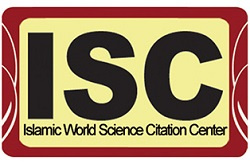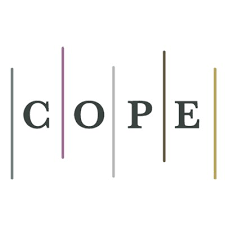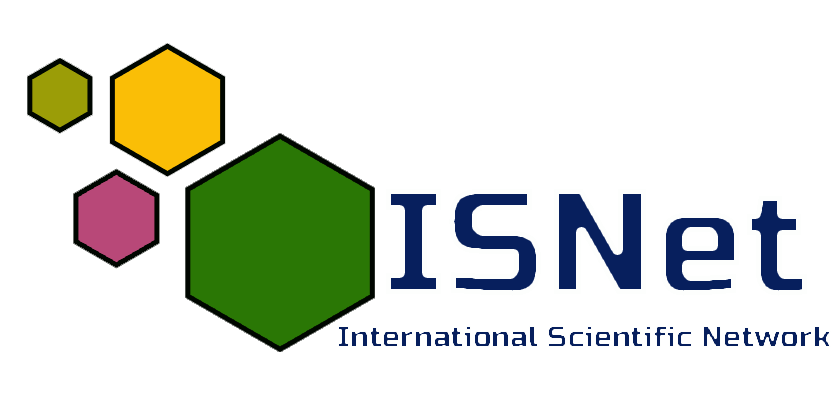Assessing the effect of the lack of pharmaceutical manufacturing on healthcare provision in Botswana
DOI:
https://doi.org/10.52547/ijimes.2.4.1DOR:
https://dorl.net/dor/20.1001.1.27832678.2022.2.4.1.4Keywords:
Pharmaceutical manufacturing, Medicine stockout, Healthcare provision, Service delivery, BotswanaAbstract
Purpose: The lack of pharmaceutical products in Botswana has been a serious concern as citizens experience adverse health outcomes due to poor access to effective treatments. This study investigated the effect of the lack of pharmaceutical manufacturing on healthcare provision in Botswana. Systems Theory underpinned this study. This theory specifies the importance of component parts to work in unison to achieve a specific objective. An interpretivist research paradigm was adopted, which enhanced gaining knowledge on the fundamental reasons for the dearth of drugs/medicine in the Botswana healthcare system.
Methodology: A qualitative research approach and an exploratory research design were selected for this study. These two methods enhanced the interviewing thirty-four participants such as doctors, nurses, pharmacists, inventory employees, and the public on the reasons for the shortage of drugs and how this affects citizens. Data were collected using open-ended interviews and responses were gathered from participants from a historical point of view. After the collection of data, an analysis was conducted using Atlas-ti Software (version 8.2). Themes and categories were generated and were discussed by corroborating them with the literature review findings.
Findings: Findings from the study indicate that the reasons for medical stockout include poor planning by medical authorities, the emergence of new diseases, the lack of public private partnerships, logistic issues such as organizational red tape during tender decisions, ordering less than national demand by medical procurement officials, delays in import permits, delays by suppliers, and transportation challenges. The effects of medicine stockout include the healthcare system’s inability to cure diseases, an increase of deaths, failure to control disease, continued stockouts, worsening of sicknesses, non-compliance of patients, failure to meet treatment outcomes, and an increased cost of medicines. The study recommends among others, that the government should support local pharmaceutical manufacturing, allow private companies to participate, and discourage sole distributorship.
Originality/Value: This research Assessing the effect of the lack of pharmaceutical manufacturing on healthcare provision in Botswana
Downloads
References
African Union Commission. 2013. Africa Health Strategy 2016 – 2030. https://au.int/sites/ default/files/documents/24098-au_ahs_strategy_clean.pdf. Accessed on 20th June 2021.
Ameh, S., Klipstein-Grobusch, K., D’ambruoso, L., Kahn, K., Tollman, S.M. & Gómez-Olivé, F.X. 2017. Quality of integrated chronic disease care in rural South Africa: user and provider perspectives. Health policy and planning, 32(2):257-266.
Atif, M., Malik, I., Mushtaq, I. & Asghar, S. 2019. Medicines shortages in Pakistan: a qualitative study to explore current situation, reasons and possible solutions to overcome the barriers. BMJ open, 9(9):027028.
Bainame, K. & Letamo, G. 2015. Evaluation of Data Quality of the Botswana 2011 Population and Housing Census. Botswana Notes and Records, 46.
Botswana Country Commercial Guide. 2020. Medical Equipment and Pharmaceuticals. A publication of the Botswana - Country Commercial Guide 31/08/2020. Available online at: https://www.trade.gov/country-commercial-guides/botswana-medical-equipment-and-pharmaceuticals. Accessed 05/02/2021. Clark & Barraclough, 2010).
Coghlan, R., Stephens, P., Mwale, B. & Siyanga, M. 2018. A new approach to gathering pharmaceutical market data to support policy implementation and access to medicines: as demonstrated by malaria medicines in Zambia. Malaria journal, 17(1):1-14.
Creswell, J.W. 2014. Research design: qualitative, quantitative, and mixed methods approach. 4th ed. CA: Sage Publications.
De Weerdt, E., Simoens, S., Hombroeckx, L., Casteels, M. & Huys, I. 2015. Causes of drug shortages in the legal pharmaceutical framework. Regulatory Toxicology and Pharmacology, 71(2):251-258.
Department of Trade and Industry (DTI). 2019). Sectors and services. http://www.thedtic .gov. za/media- room/publications/. Accessed on 25th July 2021.
European Union. 2020. General Report on the activities of the European Union. https://op.europa.eu/webpub/com/general-report-2020/en/#:~:text=To%20set %20the %20EU's%20objective,become%20climate%20neutral%20by%202050. Accessed on 20th June 2021.
Farahani, M., Price, N., El-Halabi, S., Mlaudzi, N., Keapoletswe, K., Lebelonyane, R., Fetogang, E.B., Chebani, T., Kebaabetswe, P., Masupe, T. and Gabaake, K. 2016. Impact of health system inputs on health outcome: a multilevel longitudinal analysis of Botswana National Antiretroviral Program (2002-2013). PloS one, 11(8), p.e0160206
Farahani, M., Vable, A., Lebelonyane, R., Seipone, K., Anderson, M., Avalos, A., Chadborn, T., Tilahun, H., Roumis, D., Moeti, T. & Musuka, G., 2014. Outcomes of the Botswana national HIV/AIDS treatment programme from 2002 to 2010: a longitudinal analysis. The Lancet Global Health, 2(1):44-e50.
Gunasekaran, A., Yusuf, Y.Y., Adeleye, E.O., Papadopoulos, T., Kovvuri, D. & Geyi, D.A.G. 2019. Agile manufacturing: an evolutionary review of practices. International Journal of Production Research, 57(15-16):5154-5174.
Hedman, L. 2016. Global approaches to addressing shortages of essential medicines in health systems. WHO Drug Information, 30(2):180.
Ivankova, N.V. 2015. Mixed methods application in action research: from methods to community action. London: Sages Publications.
Kagashe, G. & Massawe, T. 2012. Medicine stock out and inventory management problems in public hospitals in Tanzania: a case study of Dar es Salam region hospitals. International Journal of Pharmacy, 2, 252-
Kaur, S., Chandar, A., Mayer, T.M., Toppmeyer, D., Strair, R., Marlink, R., Antony, R., DiGiacobbe, M., Lebelonyane, R. & Gaolathe, T. 2019. Evaluating the challenges of cancer care in Botswana: Chemotherapy utilization and stock outs: American Society of Clinical Oncology.
Konstantinus, I. 2019. Effect of progestin-based hormonal contraceptives on genital inflammation and Th17 cell activation in adolescents at high risk for HIV infection.
Krämer, A., Haupt, S., Coetzer, P. & von Blomberg, I. 2014. Health and Medicines Sector Market Assessment in Botswana, Lesotho, Namibia and South Africa. Available online at: https://endeva.org/wpcontent/uploads/2014/11/AMIIF_Market_Assessment_Final_Jan_2014_as_printed-2.pdf. Accessed 05/02/2021. Accessed on 5th June 2021.
Lakdawalla, D.N. 2018. Economics of the pharmaceutical industry. Journal of Economic Literature, 56(2):397-449.
Lufesi, N.N., Andrew, M. and Aursnes, I., 2007. Deficient supplies of drugs for life diseases in an African community. BMC Health Services Research, 7(1):1-7.
Martei, Y., Grover, S., Bilker, W., Setlhako, D., Ralefala, T., Manshimba, P., Gross, R., Shulman, L. & DeMichele, A. 2018. Impact of Chemotherapy Stock-Out on Standard Therapy Delivery Among Cancer Patients in Botswana: American Society of Clinical Oncology.
Martei, Y.M., Grover, S., Bilker, W.B., Monare, B., Setlhako, D.I., Ralefala, T.B., Manshimba,P., Gross, R., Shulman, L.N. & DeMichele, A., 2019. Impact of essential medicine stockouts on cancer therapy delivery in a resource-limited setting. Journal of global oncology, 5 (1):1-11.
Mathew, P. 2015. Generic drugs: Review and experiences from South India. Journal of family medicine and primary care, 4(3):319.
Moyo, S. 2016. Governance challenges in service delivery: a case of local municipalities in the North West Province, South Africa. African Journal of Governance and development.
Muyinda, H. & Mugisha, J. 2015. Stock-outs, uncertainty and improvisation in access to healthcare in war-torn Northern Uganda. Social Science & Medicine, 146:316-323.
Panzitta, M., Ponti, M., Bruno, G., Cois, G., D’Arpino, A., Minghetti, P., Mendicino, F.R., Perioli, L. & Ricci, M. 2017. The strategic relevance of manufacturing technology: An overall quality concept to promote innovation preventing drug shortage. International journal of pharmaceutics, 516(1-2):144-157.
Paulus-Mokgachane, T.M., Visagie, S.J. and Mji, G., 2019. Access to primary care for persons with spinal cord injuries in the greater Gaborone area, Botswana. African Journal of Disability, 8(1):1-9.
Pheage, T. 2017. Dying from lack of medicines. Encouraging local production, right policies the way out. A United nations (UN) publication available online at:https://www.un .org/ africarenewal/magazine/december-2016-march-2017/dying-lack-medicines. Accessed 02/05/2021. Accessed on 4th May 2021.
Poku, R.A., Owusu, A.Y., Mullen, P.D., Markham, C. & McCurdy, S.A. 2017. HIV antiretroviral medication stock-outs in Ghana: contributors and consequences. African Journal of AIDS Research, 16(3):231-239.
Raja, S. & Mohammad, N. 2005. A Handbook on Supply Chain Management for HIV/AIDS Medical Commodities. World Bank, Washington DC: AIDS campaign team for Africa and the World Bank health, nutrition, and population.
Russo, G. & Banda, G. 2015. Re-thinking pharmaceutical production in Africa; Insights from the analysis of the local manufacturing dynamics in Mozambique and Zimbabwe. Studies in Comparative International Development, 50(2):258-281.
Sayed, S., Cherniak, W., Lawler, M., Tan, S.Y., El Sadr, W., Wolf, N., Silkensen, S., Brand, N., Looi, L.M. & Pai, S.A. 2018. Improving pathology and laboratory medicine in low-income and middle-income countries: roadmap to solutions. The Lancet, 391(10133):1939-1952.
Shafaat, K., Hussain, A., Kumar, B., Ul Hasan, R., Prabhat, P. & Yadav, V.K., 2013. An overview: storage of pharmaceutical products. World J Pharm Sci, 2(5), pp.2499-515.
Stegemann, S. 2016. The future of pharmaceutical manufacturing in the context of the scientific, social, technological and economic evolution. European Journal of Pharmaceutical Sciences, 90:8-13.
Stillson, C., Okatch, H., Frasso, R., Mazhani, L., David, T., Arscott-Mills, T., Matlhare, M. & Steenhoff, A. 2016. ‘That's when I struggle'… Exploring challenges faced by care givers of children with tuberculosis in Botswana. The International Journal of Tuberculosis and Lung Disease, 20(10):1314-1319.
Taylor, N. 2010. Botswana seeks partners to start manufacturing drugs. Available online at: https://www.outsourcing-pharma.com/Article/2010/03/18/Botswana-seeks-partners-to-start-manufacturing-drugs. Accessed on 4th February 2021.
Tshiamo, W.B., Kgositau, M., Ntsayagae, E. and Sabone, M.B., 2015. The role of nursing education in preventing medication errors in Botswana. International Journal of Africa Nursing Sciences, 2(3):18-23.
United Nations Conference on Trade and Development UNCTAD. 2013. World Annual report. https://unctad.org/system/files/official-document/dom2014d1_en.pdf. Accessed on 20th January 2021.
United Nations. 2020. Sustainable Development Goals. https://www.un.org/sustainable development/health/. Accessed on 20th June 2021.
Vermaelen, K., Waeytens, A., Kholmanskikh, O., Van den Bulcke, M. and Van Valckenborgh, E., 2018, October. Perspectives on the integration of Immuno-Oncology Biomarkers and drugs in a Health Care setting. In Seminars in Cancer Biology (Vol. 52, pp. 166-177). Academic Press.
World Health Organisation. 2016. WHO essential medicines and health products: annual report 2016.
World Health Organization 2013. Global Health Observatory Data Repository. Aggregated data: Density per 1000 by country: World Health Organization.
World Health Organization. 2016. Addressing the global shortage of medicines and vaccines. WHA69.25. [Internet]. Geneva; 2016 [cited 2017 Sept]. Available from: http:// apps. who. int/medicinedocs/documents/s22423en/s22423en.pdf. Accessed on 24th August 2021.
World Health Organization. 2017. Meeting Report: Technical Definitions on Shortages and Stockouts of Medicines and Vaccines [Internet]. Geneva; 2017 [cited 2017 Nov]. Available from: http://www.who.int/medicines/areas/access/Meeting_report_October_Shortages.pdf. Accessed on 20th June 2021.
Zimmermann, M., Adamson, B., Lam‐Hine, T., Rennie, T. & Stergachis, A. 2018. Assessment tool for establishing local pharmaceutical manufacturing in low‐and middle‐income countries. International Journal of Pharmacy Practice, 26(4):364-368
Published
How to Cite
Issue
Section
License
Copyright (c) 2022 Bathusi Kgosietsile, Prince Enwereji, Johan Jordaan

This work is licensed under a Creative Commons Attribution 4.0 International License.












